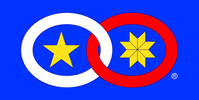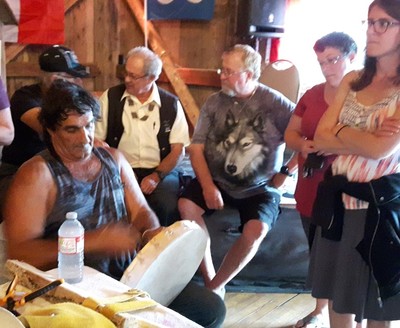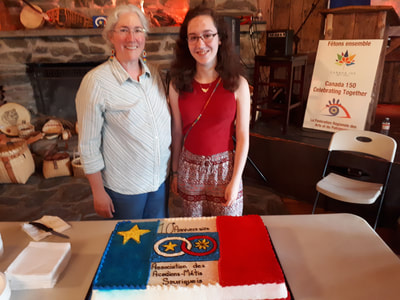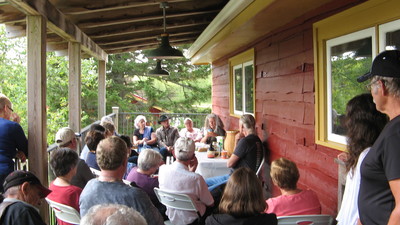Why Join Association des Acadiens-Métis Souriquois (AAMS)?
Notice: While the AAMS organization identifies individuals and resources to assist us with application reviews, the AAMS is not accepting new applications at this time. Please refrain from sending any new applications to AAMS until further notice. Thank you for your patience.
In a recent publication, the Congress of Aboriginal Peoples (CAP) made the following statements: The Canadian Constitution (1982) recognizes the Métis as Aboriginal Peoples, but it does not specifically define who the Métis are or the extent of their rights. This issue has been left to the courts to decide, or governments to negotiate. In 2003, the Supreme Court of Canada decided the Powley case. This ruling is called the “Powley decision.”
While the Powley decision recognizes the Aboriginal right of the Métis Peoples to harvest/hunt for food, it does not define who is a Métis. Instead, the Court set up a ten-part test that lists the criteria which Métis individuals must meet in order to exercise the Aboriginal Métis right to harvest/hunt for food. This is called the “Powley criteria/test.” (click here to view) CAP has identified three (3) key elements with respect to the Powley criteria/test: (1) self-identification; (2) community; and (3) ancestral link. What this generally means is that Métis individuals claiming an Aboriginal right must not only self-identify as Métis, but are further required to prove they belong to a modern-day Métis community with historical roots.
Furthermore, Article 5 of the Powley criteria/test has a significant meaning under the title of “Identification of a relevant time." In order to identify whether a practice (right) was integral to the historic Aboriginal community, the Court looks for a relevant time. Ideally, this is a time when the practice can be identified and before it is forever changed by European influence. For Indians, the Court looks to a “pre-contact time."
While the Powley decision recognizes the Aboriginal right of the Métis Peoples to harvest/hunt for food, it does not define who is a Métis. Instead, the Court set up a ten-part test that lists the criteria which Métis individuals must meet in order to exercise the Aboriginal Métis right to harvest/hunt for food. This is called the “Powley criteria/test.” (click here to view) CAP has identified three (3) key elements with respect to the Powley criteria/test: (1) self-identification; (2) community; and (3) ancestral link. What this generally means is that Métis individuals claiming an Aboriginal right must not only self-identify as Métis, but are further required to prove they belong to a modern-day Métis community with historical roots.
Furthermore, Article 5 of the Powley criteria/test has a significant meaning under the title of “Identification of a relevant time." In order to identify whether a practice (right) was integral to the historic Aboriginal community, the Court looks for a relevant time. Ideally, this is a time when the practice can be identified and before it is forever changed by European influence. For Indians, the Court looks to a “pre-contact time."
How to Join Association des Acadiens-Métis Souriquois (AAMS)
The Association des Acadiens-Métis Souriquois (AAMS) will accept as a regular member, any individual over the age of sixteen (16) years, who resides in Nova Scotia and beyond, whose families originated in mainland Nova Scotia, who self-identifies as Acadien-Métis with an ancestral connection to a historical Acadien-Métis community, who provides genealogical proof of an ancestral connection to Acadien-Métis heritage by birth or adoption, who is accepted by the modern Acadien-Métis community and who upholds the objectives of the Association des Acadiens-Métis Souriquois (AAMS).
|
Click to download AAMS application guidelines, and files (Updated July 3, 2024):
Open application page 1
Open application page 2
|
On the AAMS membership application form, the following information is requested:
Name and address
|
* While you may know of your Acadien-Métis or Aboriginal family lines, you may not always have the records you need to document them, and it's important to have these in place when you submit your application. As of 2024, the Centre acadien no longer processes genealogy requests nor delivers any genealogical proof or certificate. However, its database is now online and freely accessible by creating an account to anyone willing to conduct their own research. Here is the link to the database and a guideline : https://genealogie.usainteanne.ca/index.php?route=%2Flogin&url=. See Application Guidelines for more details.






